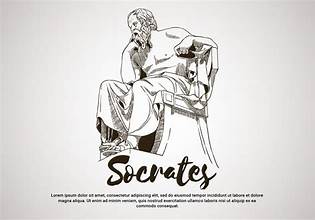Build a Philosophy Quote Generator with Vector Search and Astra DB (Part 3)

Build a Philosophy Quote Generator with Vector Search and Astra DB (Part 3) is an exciting journey into the intersection of artificial intelligence, natural language processing, and cutting-edge database technology. In the earlier parts of this series, we explored the core principles behind building a robust quote generator. In this final segment, we’ll delve into the intricacies of using vector search combined with Astra DB to create a highly efficient and scalable solution for retrieving philosophy quotes based on similarity and relevance.
In Part 3, the focus shifts to implementing the backend structure for the generator, enhancing it with vector search capabilities powered by Astra DB. Vector search enables more nuanced and intelligent quote retrieval by analyzing the semantic meaning of queries and matching them with similar quotes stored in the database. This approach opens the door to improving user experience, making the generator more intuitive and dynamic. Let’s walk through the steps involved in building such a generator.
Table of Contents
Understanding the Core Components
Before diving into the code and technical steps, it’s essential to understand the key components involved in build a philosophy quote generator with vector search and Astra DB (part 3).
- Vector Search: At the heart of this philosophy quote generator is vector search, which allows for searching based on semantic similarity rather than exact string matching. Traditional search engines typically rely on keyword matching, but vector search enables the identification of similar or contextually relevant quotes even if the search terms don’t exactly match the quote itself.
- Astra DB: Astra DB, built on Apache Cassandra, provides the backend database for storing the philosophy quotes. This scalable, cloud-native NoSQL database is designed to handle large volumes of data while maintaining high availability and performance. Astra DB seamlessly integrates with vector search, providing the storage and querying infrastructure for the quote generator.
- Philosophy Quote Database: A large collection of quotes from famous philosophers forms the core dataset. These quotes will be indexed using vector embeddings, which are mathematical representations of the meaning of words and sentences. By leveraging vector search, the system can retrieve quotes that match the user’s query in terms of context and meaning, even if the exact wording doesn’t align.
Step-by-Step Process to Build a Philosophy Quote Generator with Vector Search and Astra DB (Part 3)

1. Preparing the Dataset
The first step in build a philosophy quote generator with vector search and Astra DB (part 3) is to prepare the dataset. This dataset will consist of quotes from philosophers across different schools of thought, from Ancient Greece to modern-day thinkers.
- Gather Quotes: Collect a diverse range of quotes. You can manually source them or scrape publicly available collections online.
- Format the Data: Ensure that each quote is structured correctly in the dataset. A basic structure might include:
- Quote text
- Author
- Date (if available)
- Philosophy category (e.g., ethics, epistemology, metaphysics, etc.)
This dataset can be stored as a JSON or CSV file, which will later be uploaded to Astra DB for storage.
2. Preprocessing the Text Data
For the system to understand the semantic meaning of the quotes, we must convert the text into vector embeddings. To achieve this, we’ll use a language model like BERT (Bidirectional Encoder Representations from Transformers) or GPT to generate embeddings for each quote.
- Text Cleaning: Before embedding the text, clean the quotes to remove any unnecessary characters, punctuation, or special symbols.
- Embedding Generation: Use a pre-trained model (such as BERT or a smaller, fine-tuned variant) to convert each quote into a high-dimensional vector. This vector captures the semantic meaning of the quote, allowing the search engine to compare the similarity between different quotes.
3. Storing the Embeddings in Astra DB
Once the text is converted into vector embeddings, the next task is to store these embeddings in Astra DB. Astra DB is a cloud-native database built on Apache Cassandra, which supports the scalability required for large datasets.
- Setting Up Astra DB: First, sign up for an Astra DB account and create a new database. Astra DB provides free-tier offerings for experimentation, making it easy to get started.
- Schema Design: Design the schema for the philosophy quote database. The table should contain columns for the quote text, author, and the vector embedding associated with each quote. For vector search, it’s essential to store the embeddings as well as their metadata (e.g., author, category).
- Uploading Data: Load the quotes and their embeddings into Astra DB. You can use Python scripts with the Cassandra Python driver to automate the upload process.
4. Implementing Vector Search with Astra DB
With the quotes and embeddings stored in Astra DB, the next step is to implement the vector search capability. Vector search relies on calculating the similarity between the query vector (user’s input) and the stored quote vectors.
- Search Query: When a user submits a query, preprocess the query in the same way as the quotes (clean the text and generate the embedding). This embedding will serve as the query vector.
- Cosine Similarity: Calculate the cosine similarity between the query vector and the stored vectors in the database. Cosine similarity measures how similar two vectors are, regardless of their magnitude. The higher the similarity, the more relevant the quote is to the query.
- Fetching Results: After computing the similarities, retrieve the top N most relevant quotes based on the cosine similarity scores.
5. Designing the User Interface
The user interface (UI) is an essential part of the quote generator, allowing users to interact with the system and retrieve quotes based on their philosophical inquiries. The UI should be simple, intuitive, and responsive.
- Search Bar: Provide a search bar where users can input their philosophical queries. As users type their queries, the system should display relevant suggestions based on the initial part of the query.
- Display Quotes: After a user submits a query, display the most relevant philosophy quotes along with the name of the philosopher and the quote’s context (if available).
- Interactivity: Allow users to filter quotes based on the category of philosophy (e.g., ethics, metaphysics) or even by philosopher. This enhances the user experience, making the generator more flexible.
6. Optimizing Performance and Scalability
Since the database is expected to handle large amounts of quote data, it’s crucial to optimize the performance of the system.
- Indexing: Use indexing strategies to ensure that vector search queries are executed efficiently. Astra DB offers several methods for indexing large datasets, and by indexing the embeddings, the search process becomes faster.
- Caching: Implement a caching layer to store frequently searched queries and results, reducing the load on the database and speeding up retrieval times for common queries.
- Sharding and Replication: Astra DB allows for sharding and replication to ensure that your system is both horizontally scalable and fault-tolerant. These features are vital for handling increasing numbers of users and queries.
Benefits of Vector Search in a Philosophy Quote Generator

Incorporating vector search into build a philosophy quote generator with vector search and Astra DB (part 3) significantly enhances the user experience by enabling context-based search. Some key benefits include:
- Contextual Relevance: Unlike traditional search, which may return irrelevant quotes if the exact wording doesn’t match, vector search ensures that the most contextually relevant quotes are returned, even if the search query uses different wording.
- Personalization: By analyzing the user’s past searches and interactions, the system can offer more personalized quote suggestions over time, making the quote generator more valuable to the user.
- Flexibility: Users can ask complex philosophical questions or make vague queries, and the system will intelligently match the query with related quotes, improving the quality of the interaction.
Also read Melanie from CraigScottCapital: A Deep Dive into Her Role and Influence
Conclusion
Build a philosophy quote generator with vector search and Astra DB (part 3) marks the final step in creating a dynamic, powerful, and intelligent system for retrieving philosophy quotes. By leveraging vector search and Astra DB, this generator can offer a rich user experience, with highly relevant quotes retrieved based on the meaning and context of the user’s query, rather than relying solely on exact keyword matches.
Through a detailed process of preparing the dataset, preprocessing the text, storing embeddings in Astra DB, and implementing vector search, we’ve created a system that is not only scalable but also capable of handling complex queries with high performance. The combination of these technologies allows for a powerful tool that can serve as a valuable resource for anyone seeking philosophical insights.
As you implement the concepts discussed in this article, keep in mind that optimization, scalability, and user experience are key. With Astra DB and vector search in place, your philosophy quote generator will be equipped to deliver meaningful and contextually relevant quotes to users, regardless of their philosophical inquiries.




